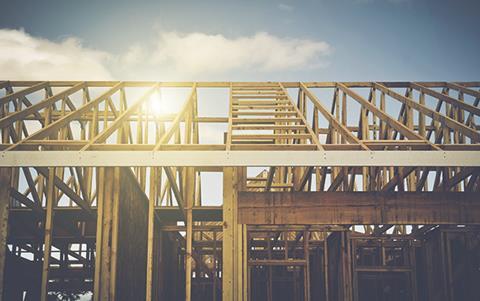Neighbourhood plans were introduced by the government in 2012 to give local people more say over the sort of housing built in their area and to help increase housebuilding.

The government insists that housebuilding has increased by 10% as a direct result of neighbourhood planning – a statistic quoted in its 2017 housing white pape r.
However, a new report from planning and development consultancy Lichfields suggests this hasn’t happened. In ‘Local choices? Housing delivery through neighbourhood plans’, it finds that few plans propose more housing than their corresponding local plan and of those that do, the increase is modest.
Property Week spoke to a range of experts to get their views about the report’s findings,the state of neighbourhood planning and what the future might hold.
Neighbourhood plans are meant to work alongside the local plans made by councils, which “set out a vision and a framework for the future development of the area”. Created by parish or town councils and community groups, they decide how housebuilding should actually be implemented.
However, Lichfields director Matthew Spry believes this system is not working. “Our research shows 60% of neighbourhood plans do not contain a housing figure or site allocations, suggesting that local communities are placing greater emphasis on other planning issues, such as protecting local infrastructure, green space and services,” he says.
Analysing the plans
Spry and his team analysed 330 of the 542 neighbourhood plans that had been put into action. As well as finding that only 40% contained a housing figure or site allocations, they found just 15 proposed more housing than the local plan. Even in those 15 plans, the increase in housebuilding was just 3% on average – a far cry from the government’s own figures.
Industry experts agree that the government’s claim that the plans increase housebuilding is misleading.
Sue Rowlands, director of Tibbalds, calls the claim “woefully inaccurate”. “There’s no evidence to support it. Still, why let facts get in the way of a good story?” she says.
“When done well, neighbourhood plans can create better places by encouraging the kind of development locals actually want”
Sue Rowlands, Tibbalds
However, despite this, Rowlands thinks neighbourhood plans are “a good thing on the whole”. In response to the report’s claim that 60% of neighbourhood plans don’t have housing provisions, Rowlands counters that “the aim of neighbourhood planning was never to build more housing than required by local plans”.
She adds: “Rather, the aim of neighbourhood plans is to give local people a voice on development. When done well, they can create better places by encouraging the kind of development locals actually want, rather than being technically driven by local plans. It’s a softer and more considered approach, which generates more support for building projects because of increased involvement.”
‘More likely to hinder’
Others are more critical. Roni Savage, director of Jomas Associates, feels that neighbourhood plans are “more likely to hinder than promote housing development”. She adds that they do not help solve the housing crisis because “communities are unlikely to sign up to an increase in housebuilding in their areas, where they can avoid it.”
Mark Dodds, head of planning and development at Lambert Smith Hampton, has a similar viewpoint, describing neighbourhood plans as a “fundamentally bad idea”.
“They mean giving local people the power to block new housing to protect the character of their local area,” he adds. “I have seen this sort of thing happen myself. It’s inherently protectionist and conservative.”
“We shouldn’t be surprised that a system without proper care is failing”
Robin Shepherd, Barton Willmore
Rowlands concedes that neighbourhood plans don’t typically lead to more housing, because people living in a community are unlikely to commit to more housing than the local plan, but doesn’t feel neighbourhood plans scupper housebuilding either.
In her view, community consultation ultimately leads to a decision more local people are going to support. The result is “a smoother, quicker ride through the planning application process”.
Neighbourhood plans emerge before local plans
Another problem Lichfields’ report raises is that 55% of neighbourhood plans emerge before local plans. Spry says the lack of an up-to-date local plan means that communities don’t know what or how much to build. As a result, they can duck difficult decisions on housing. Worse still, when the new local plan does finally emerge, it may contradict and override the neighbourhood plan.
However, Rowlands calls this a “non-issue”, on the grounds that “there is always some form of adopted local plan, so there’s always some higher-level policy to relate to”. For Rowlands, the concern that a neighbourhood plan might come before a local plan is beside the point, as local plans change every few years.
“If the neighbourhood plan waits for the local plan to be adopted, there will be another one along in a few years,” she says. “So would this mean the neighbourhood plan is again ahead of the [new] local plan?”
Creating conflict
LSH’s Dodds would like to see neighbourhood plans scrapped. Instead, he believes in “energising” local plans. “Introducing another tier of planning policy beneath the local plan has only helped to create more complication and conflict in the planning system,” he says.
Robin Shepherd, planning partner at Barton Willmore, maintains that scrapping neighbourhood plans won’t work. He thinks that whether industry experts like it or not, they are here to stay. The Conservatives, who are likely to remain in power until the next election in 2022, are unlikely to take power away from local people after giving it to them, so he suggests we should all be focusing on how neighbourhood plans can be improved.
“Neighbourhood plans aren’t working and many communities have said to me that if they had realised how hard it was to create a neighbourhood plan, they wouldn’t have bothered doing it. But we shouldn’t be surprised that a system without proper care is failing.”
He adds: “I don’t think we should be throwing the baby out with the bathwater. Neighbourhood plans can be very good. There are examples all over Europe of them working, so there’s no reason why they couldn’t work here.”

For Shepherd, the issue comes down to funding and sensible advice. Without either of these, neighbourhood planners can end up badly advised. The lack of support also makes neighbourhood planners more likely to reject development.
Left to their own devices and without much help, Shepherd argues that “many neighbourhood plans end up halting development because they [neighbourhood planners] feel let down by local councils and developers”. To solve this issue, he believes “we need to build trust with communities and work with them in preparing their plans”.
While Dodds is strongly opposed to neighbourhood plans, he agrees that giving them more weight and support will help the system to work better. Lichfields’ report has found little substance to the government’s claim that neighbourhood plans help increase housebuilding, but the wider question of the value of the plans remains hotly debated.
Most experts agree that reform is needed. It is just a question of how far-reaching that reform should be.































No comments yet